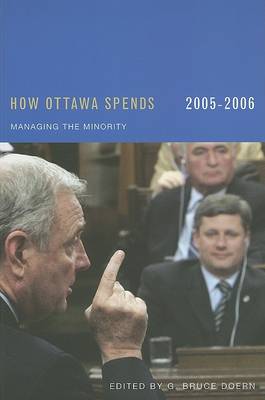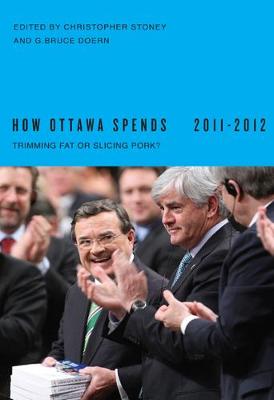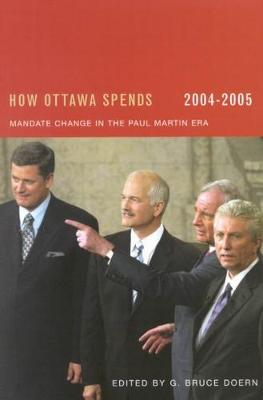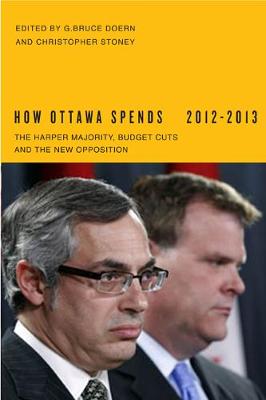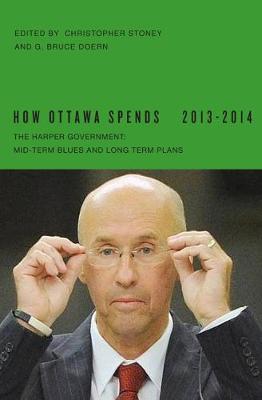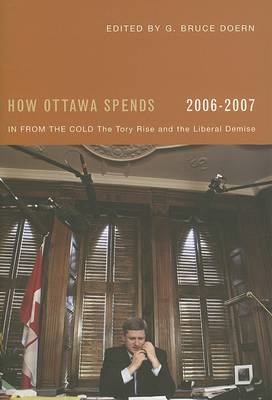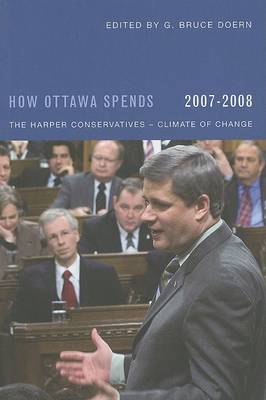How Ottawa Spends
2 primary works • 8 total works
Book 26
Book 32
Bruce Doern (Carleton University and University of Exeter), Nick Falvo (Carleton University), Mary Francoli (Carleton University), Ruth Hubbard (University of Ottawa), Derek Ireland (Carleton University), James Lahey (University of Ottawa), Douglas Macdonald (University of Toronto), Eric Milligan (Regulatory Consulting Group Inc, Ottawa), Leslie A. Pal (Carleton University), Gilles Paquet (University of Ottawa), Peter W.B. Phillips (University of Saskatchewan), Richard Schultz (McGill University), Christopher Stoney (Carleton University), Kernaghan Webb (Ryerson University), and Wei Xie (doctoral student, Carleton University).
Recession, Realignment, and the New Deficit Era
by G. Bruce Doern and Christopher Stoney
